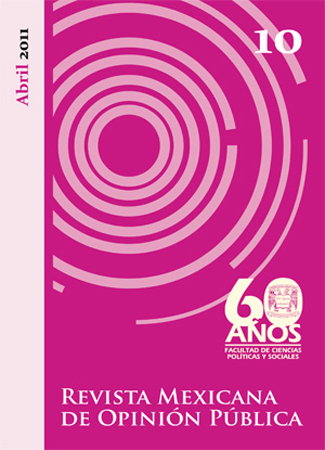Political Culture in Mexico City: street lamp, dusk at home
Main Article Content
Abstract
The issue of political culture is part of the new trends in contemporary political science. Most of its studies are based on an inevitable reference: The Civic Culture by Gabriel Almond and Sidney Verba. The concept of political culture is understood by the assimilation of a set of values, images, symbols, and the way individuals perceive the political system, evaluate their roles and relationships with key stakeholders.
Thus, participation is made according to these patterns of behavior between rulers and ruled. Mexico City, a political entity different from the rest of others, boasts the highest levels of national involvement. However, this figure turns out to be misleading because in their local government participation levels are extremely low. This entity’s participation mechanisms are institutionalized in various frameworks, but in practice they have proved a failure. This article will explain the reasons for this involvement is in sharp contrast with the numbers displayed in federal elections.
Article Details
Citas en Dimensions Service

Revista Mexicana de Opinión Pública por Universidad Nacional Autónoma de México se distribuye bajo una Licencia Creative Commons Atribución-NoComercial-SinDerivar 4.0 Internacional.
Basada en una obra en http://revistas.unam.mx/index.php/rmop.




